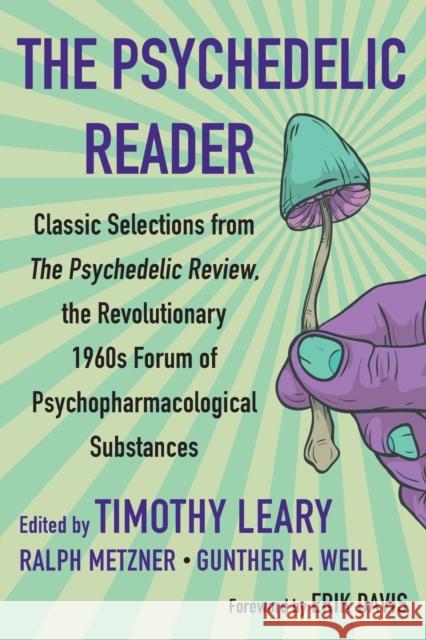The Psychedelic Reader: Classic Selections from the Psychedelic Review, the Revolutionary 1960's Forum of Psychopharmacological Substances » książka
topmenu
The Psychedelic Reader: Classic Selections from the Psychedelic Review, the Revolutionary 1960's Forum of Psychopharmacological Substances
ISBN-13: 9780806541303 / Angielski / Miękka / 2021 / 256 str.
The Psychedelic Reader: Classic Selections from the Psychedelic Review, the Revolutionary 1960's Forum of Psychopharmacological Substances
ISBN-13: 9780806541303 / Angielski / Miękka / 2021 / 256 str.
cena 60,63
(netto: 57,74 VAT: 5%)
Najniższa cena z 30 dni: 60,46
(netto: 57,74 VAT: 5%)
Najniższa cena z 30 dni: 60,46
Termin realizacji zamówienia:
ok. 16-18 dni roboczych
Dostawa w 2026 r.
ok. 16-18 dni roboczych
Dostawa w 2026 r.
Darmowa dostawa!
Kategorie:
Kategorie BISAC:
Wydawca:
Citadel Press Inc.,U.S.
Język:
Angielski
ISBN-13:
9780806541303
Rok wydania:
2021
Ilość stron:
256
Waga:
0.25 kg
Wymiary:
22.61 x 15.24 x 2.03
Oprawa:
Miękka
Wolumenów:
01











